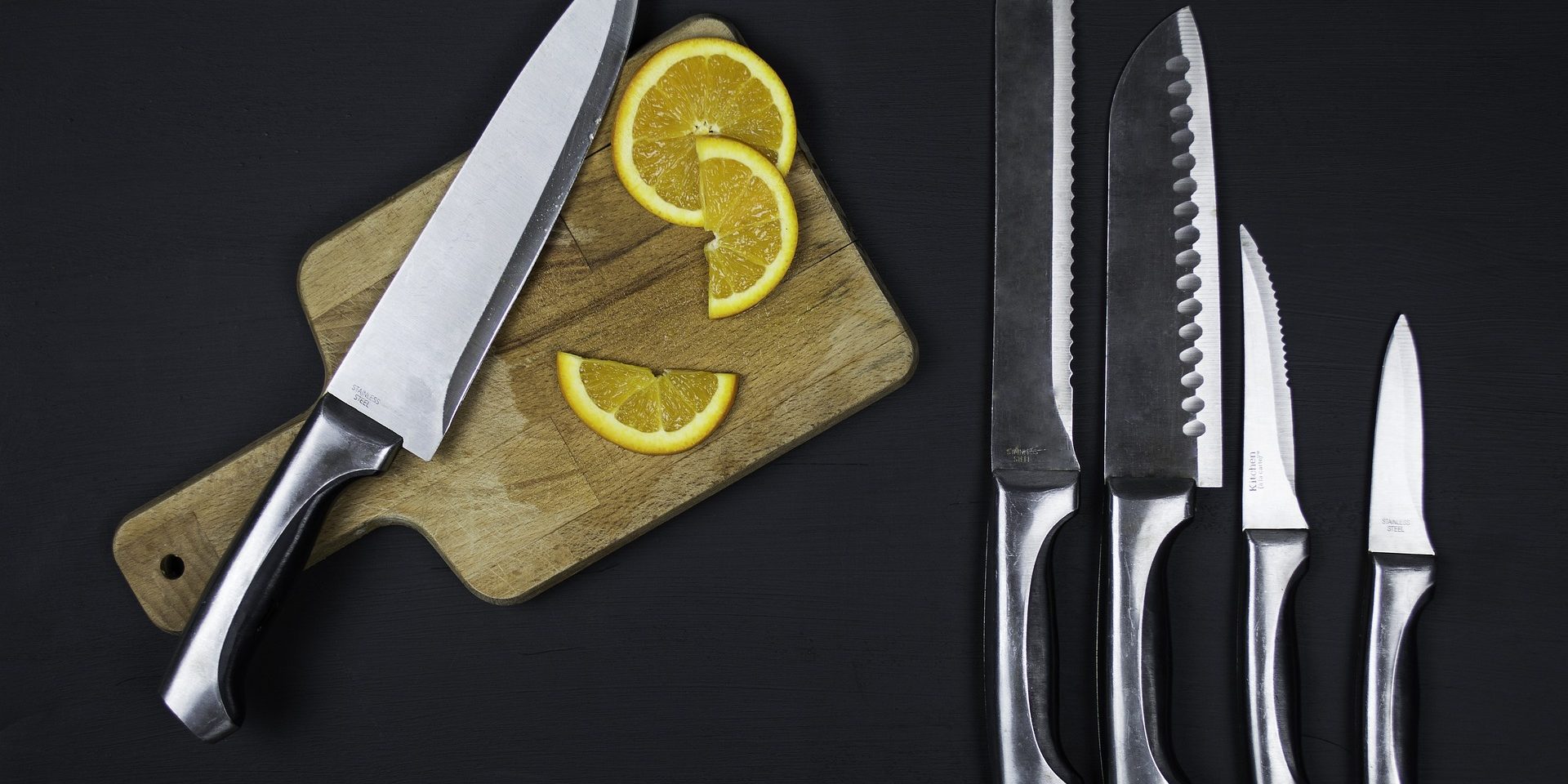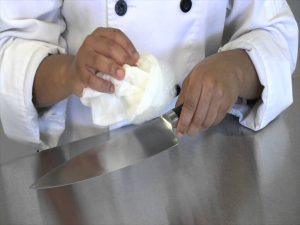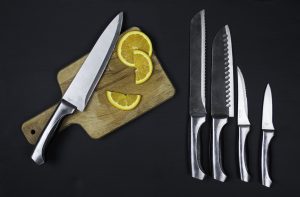Even in the US, more than 48 million people get food poisoning and die around 3 thousand for this reason each year. And many of these poisonings happen because the food gets contaminated by using unclean knives.
Now, if you’re wondering why and when must a knife be cleaned and sanitized, either because of your curiosity or someone who insisted on doing it properly, then you’re at the right place.
Even though a knife is dangerous itself, it can be more dangerous when unclean, as it can carry deadly chemicals and microorganisms that can even lead to death.
So, if you don’t want to harm yourself and the people around you, let’s get to know the timing, reasons, and how to clean and sanitize knives properly.
When Must A Knife Be Cleaned and Sanitized
Your knife needs to be cleaned and sanitized each time it gets dirty or contaminated by microorganisms. Let’s know when the knives get contaminated most and least to clean them accordingly.
-
When The Knife is New
When you’ve just bought a knife, don’t use the clean-looking shiny knife on your fruits and have a bite at the fruit slices.
Because no matter how clear the brand-new knife looks, it can still have chemicals on them or dust off the materials when it was manufactured.
For these reasons, cleaning your knife before using it for the first time is best. And if you also sanitize the knife, it’ll be even better!
-
After Cutting Veggies and Fruits
Although vegetables and fruits don’t contain harmful pathogens, it’s a better choice to maintain hygiene and clean the knife with plain water before and after cutting fruits and veggies.
If you leave the knife unclean after cutting some fruits, it’ll attract kitchen bugs. Those bugs contain harmful microorganisms and they can enter your body through contamination.
-
After Scaling Fish
When you cut fish or scale fish, it’s a must to clean and sanitize your knife.
Since the fish scales are sticky, they can stick to the knife even when you clean them with water. That’s why you must be extra careful to get rid of the scales and sanitize the knife.
Otherwise, it’s dangerous because uncooked fishes and their scale contain any type of harmful bacteria and pathogens that can lead to serious health hazards.
Try to clean and sanitize the knife right after scaling and cutting fish without any delay.
-
After Cutting Raw Meat
You may already know why eating raw meat is bad for us; it’s because of the pathogens like salmonella that can make us severely ill when consumed.
So, when you cut any type of meat, those foodborne pathogens will stick with the knife and get mixed with other food items or somehow enter your body.
Always clean and sanitize your knives after cutting meat to avoid deadly health conditions. Also, make sure to clean the knife before cutting the raw meat to avoid any type of contamination.
-
After Cutting Yourself
If you accidentally cut yourself with a knife, clean the blood immediately after treating your wound. You’ll also need to sanitize it because your blood can contaminate other food items.
-
For Cutting Different Items or By Different People









